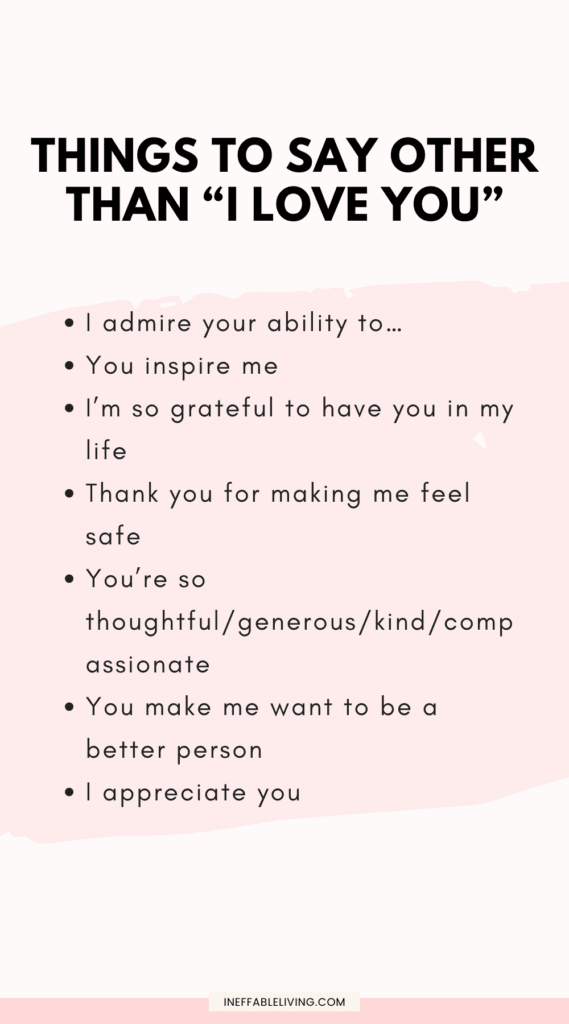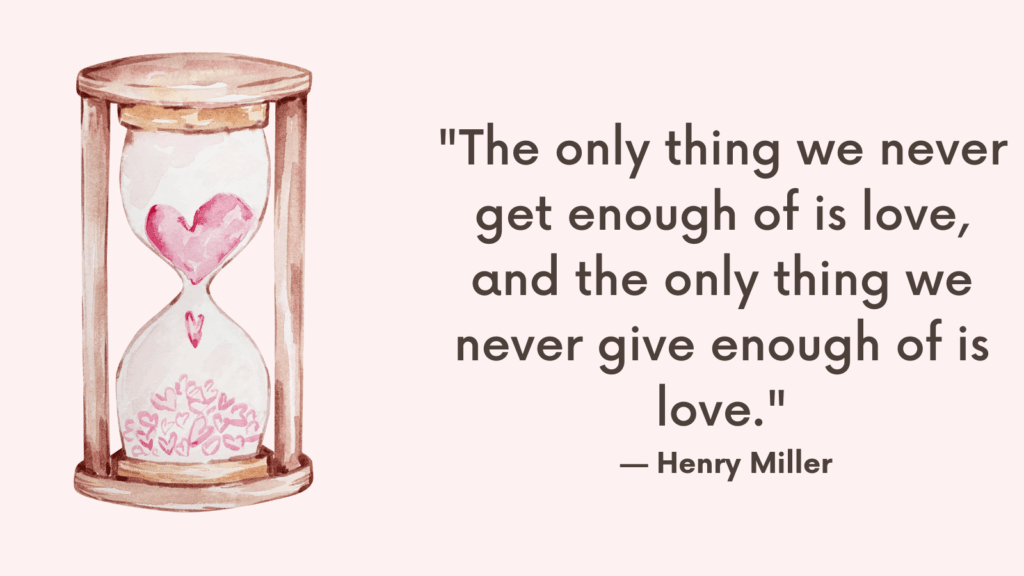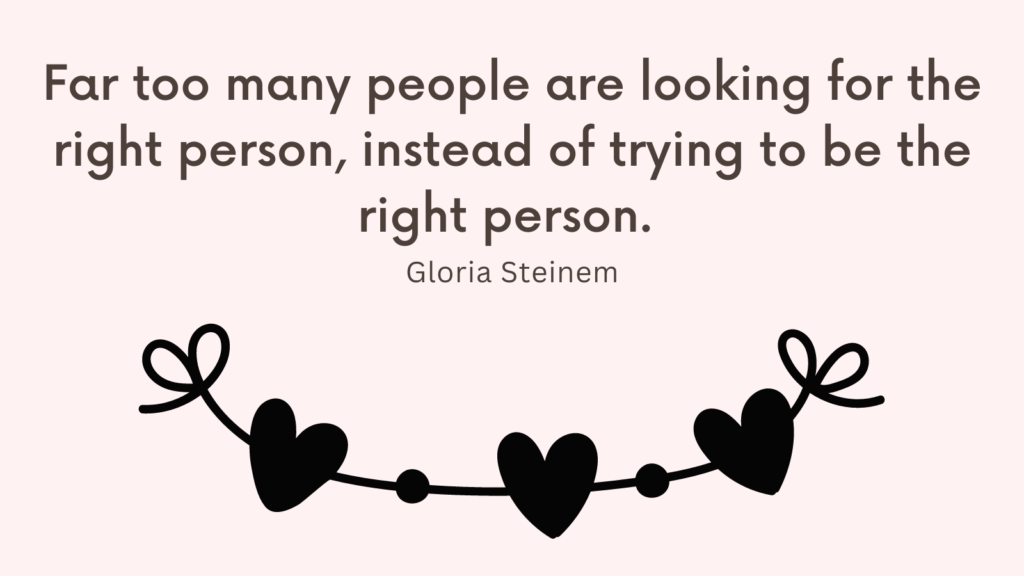This post contains “Affection Quiz” along with helpful tips on how to fight alienation of affection.
Two Types of Affection
When talking about affection, most people think of physical affection (e.g. cuddling, hugging, kissing, etc.) but there’s another type of affection that is equally important.
Emotional affection!
Forms of emotional affection may include:
- Loving words
- Kind gestures
- Expressing appreciation
- Listening to each other
Not everyone will show affection in the same ways. Some people may not say “I love you” daily, but might show their love through their actions.
Affection Quiz
The following questions represent common signs of affection in a relationship:
Results
#1. Do you regularly show each other affection in physical ways (e.g. hugging, kissing, holding hands, cuddling, giving each other a massage, etc.)?
#2. Are you satisfied and comfortable with the level of physical affection you show each other?
#3. Do you often perform acts of kindness toward each other (e.g. offer to make them a snack, take care of them when they’re sick or tired, etc.)?
#4. Do you often help each other?
#5. Do you often get each other small gifts for no reason?
#6. Do you regulary check-in with each other throughout the day?
#7. Do you regularly voice your feelings of love and care?
We will not sell your information. All results are kept confidential.
This quiz is for informational purposes only. It is not meant as a diagnostic or assessment tool.
Results
The questions above represent common signs of affection in a relationship. If you answered yes to most of these questions, then you probably show each other enough affection.
Emotional Intimacy Prompts

How to Increase Affection In Your Relationship?
Why Affection is Important?
We normally associate hunger with food. We don’t feel hungry simply because we want food, but because we need food.
In the same way, when we feel emotionally starved, it’s because we need affection.
In this sense, hunger is nature’s way of making sure we get enough of something we need for our survival.
If we ignore this hunger—either on purpose or involuntarily—we experience a number of health complications.
In fact, “failure to thrive” in human infants has been shown to result from lack of individualized, nurturing, physically affectionate parental care, whether in an orphanage or due to extreme parental neglect.
Infants or children that fail to thrive seem to be dramatically smaller or shorter than other children the same age.
Relationships offer opportunities to give and receive affection, in turn, affection helps solidify and strengthen these relationships.
Benefits of receiving affection include increase in your sense of optimism and fortitude, decrease in feelings of depression, and increase in your body’s abilities to manage stress.
Affection also helps calm certain bodily functions, such as heart rate and blood pressure.
Related: Fear Of Intimacy Quiz (+13 Tips On How To Increase Emotional Intimacy In A Relationship?)
How to Fight Alienation of Affection?
Alienation of affection refers to the emotional distance or disconnection that individuals may feel in their relationships, often leading to feelings of loneliness, isolation, and dissatisfaction.
Addressing this issue requires a multifaceted approach that focuses on both individual and relational factors.
Strategy #1: Be Open to Receiving Affection
The best way to get more affection from others is to become more affectionate with them.
Affectionate communication is reciprocal. When you receive affectionate expressions, you feel compelled to respond in a compassionate way – When someone says “I love you,” it’s difficult not to say it back.
This is of course easier said than done.
Many people want others to be more affectionate with them, but at the same time, they are terrified of the idea of expressing affection to others first.
Understanding what’s holding you back from expressing more affection begins with identifying your fears, then reframing your concerns, and finally, facing these fears.
Related: Best 21 Couples Journal Prompts To deepen Your Intimacy
1. Identify Your Fears
Expressing affection can threaten our psychological and emotional well-being in many ways.
Some people fear the vulnerability and rejection that comes with expressing affection. Other people worry about scaring people off or committing themselves too deeply to someone else.
If you find it hard to express affection in your relationships, then you need to figure out what’s holding you back.
Try This: In your journal, write down a short paragraph about yourself where you describe any worries or concerns you have that keep you from being more affectionate with others.
2. Reframe Your Worries
Start paying attention to the language you use to describe your fears about affection.
You may notice, for instance, that much of your concerns are not justified. Or you might describe yourself in absolute terms, such as “that’s just not who I am.”
When you become aware of negative, unrealistic views and beliefs about affectionate behavior, you can begin to think of more positive and realistic beliefs.
For example,
Original statement: I didn’t get much affection growing up, so I’m not comfortable being affectionate now.
Reframed statement: My parents showed me their love by providing for other basic needs, this means that expressing affection more directly is a new experience for me and that will take some practice.
Try This: Take the paragraph you wrote before and look for any negative words or unrealistic beliefs. Then replace these with positive alternatives.
3. Face Your Fears: Start Showing Affection
The best way to change your beliefs, is to experience the new ones.
Start practicing giving affection with the new understanding and new beliefs on mind. That means reminding yourself that you have shifted your way of thinking, and then behaving as if your beliefs about affection are true.
Try This: Read the new paragraph every morning and resolve to find at least one way each day to express affection in a manner you would have feared before. Then notice how every affectionate act makes you feel.
21 Simple Ways to Show Love and Affection
- Give them your full attention when they are talking to you
- Anticipate their needs
- Learn their love language
- Touch them
- Make eye contact
- Leave them a special note
- Dress up just for them
- Cook their favorite meal
- Brag about them
- Pay them a compliment
- Take care of one of their chores
- Write a list of all the reasons you love them
- Don’t forget important dates, like birthday, anniversary, etc.
- Accept them for who they are
- Forgive when they do something wrong
- Give them an back scratch
- Hold their hand
- Put your arm around them when walking
- Call them by their pet name
- Watch their favorite show with them
- Tell them how much they mean to you
Related: What Is Confluent Love?
Strategy #2: Model the Type of Relationship You Seek
Many people believe that the simplest route to getting the affection we need from others, is to ask for it.
This is because we realize that no matter how close our relationships are, our loved ones can’t read our minds, so we need to express our needs.
While this approach may work, it’s unlikely bring about long-term change and growth.
Invite Instead of Demand
Demanding affection doesn’t consider why the partner is unaffectionate in the first place. So, it doesn’t solve the problem. Some people find being emotionally vulnerable too risky or find it unnatural to express affection when they’re unfamiliar with it.
Furthermore, receiving a demand can feel belittling, regardless of what’s being demanded.
This is why inviting affection by encouraging it from a partner, can be a more effective approach.
Start reinvesting in your relationship. Create opportunities to share quality time with the other person, such as a night date, or a one-day retreat.
By inviting the person to share affection, you take much of the pressure off of them and create a safe space for them to show affection.
Inviting affection takes a bit more patience than demanding affection, but the effects are long-term and definitely worth it.
Try This: Think of one activity that you most desire from a loved one. Make a plan for inviting that activity, whether it is hugging, undivided attention, or more time spent together, or any other activity.
Choose the appropriate moment and say, “I’d love to spend some time together this weekend if you’re free.”
Related: Top 7 Tips On How To Create A Conscious Relationship Using ACT
Strategy #3: Recognize Variety of Affection Displays
Sometimes, the main reason why we feel starved for affection, is because we sometimes think too narrowly about what affection is and how it can be expressed.
This is what Dr. Gary Chapman referred to as love language.
Each one of us uses a primary love language to express his affection and love. These languages include, words of affirmation, gifts, acts of service, quality time, and physical touch.
Discovering the primary love language of your loved one will help you, not only show him affection more effectively, but also begin to appreciate his affection.
If your father welcomes you with a hug every time you go home, then his primary love language is probably physical touch. If your date complains that you never compliment them, then words of affirmation could be their primary love language. And so on…
Finding out Your Loved One’s Love Language
1. Observe Their Behavior
Ask yourself “How do they typically express love to other people?” If they regularly encourage people by giving them words of affirmation, then perhaps that is their primary love language. If they are constantly giving gifts to others, then gifts might be their primary love language and so on.
In other words, they are doing for others what they wish you would do for them.
2. Ask The Right Questions
Asking the following questions will help you discover your loved one’s primary love language.
“What do I do or say that makes you feel loved the most?”
Related: Best 50 Ways To Stay In Love Forever With Your Partner

References
- The effects of affection | Knowledge Enterprise (asu.edu)
- Mother’s affection at 8 months predicts emotional distress in adulthood – PMC (nih.gov)
- Research connects affection, attachment style and marriage satisfaction | Binghamton News
- The Science of Affection: How a Rebel Researcher Pioneered the Study of Love in the 1950s and Illuminated How Parents Shape Children’s Emotional Patterns – The Marginalian







